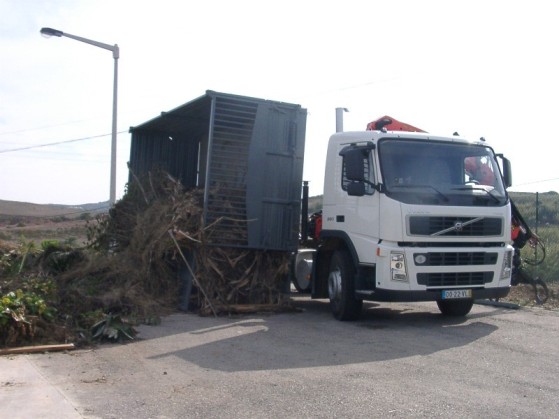 The National Laboratory for Energy and Geology (LNEG) is promoting, this Friday, the «Workshop on Herbaceous Green Waste», at the Instituto Superior Dom Afonso III, in Loulé.
The National Laboratory for Energy and Geology (LNEG) is promoting, this Friday, the «Workshop on Herbaceous Green Waste», at the Instituto Superior Dom Afonso III, in Loulé.
The Algarve waste management company Algar, which has experience both in the management of green waste and in the production of biogas, is one of the entities invited to make its contribution.
This workshop aims to raise awareness of the European project « GR3 – Grass to Green Gas», which seeks to promote the use of grass clippings and other herbaceous waste from green spaces as a resource for the production of biogas in regions of Belgium, Italy, Germany , Denmark and Portugal.
The workshop is aimed at «public and private entrepreneurs, City Councils, Green Space Management and Maintenance Companies, Waste Management Companies, Companies that supply anaerobic digestion equipment and cogeneration systems, Consultants, Municipal technicians and students».
Algar will make its contribution through a brief presentation of the national and European panorama of waste management, by its managing director, Macário Correia, and the presentation "Anaerobic Digestion of MSW at ALGAR", by Hugo Costa.
The main objective of «GR3 – Grass to Green Gas» is the production of renewable energy, in the form of biogas, «contributing, therefore, to the reduction of greenhouse gas (GHG) emissions and to the improvement of management ecological environment of green spaces'. The project has 10 partners, with Portugal being represented by (LNEG).
«In addition to other missions, these partners will have to draw up an inventory of the availability of grass clippings, their quality, demand and motivation to support the inherent costs; analyze the technical, organizational, environmental, socio-economic and legislative aspects of cultivation, cutting, logistics, storage and anaerobic digestion of grass clippings; create green jobs in the decentralized biomass valorization chain and dialogue with public entities aiming at the preparation of incentives that promote the use of grass clippings as a raw material for biogas, as well as disseminating the acquired practices to interested entities, namely the authorities companies, waste management entities, agricultural cooperatives, operators of biogas plants, etc.», revealed Algar.


















Comments